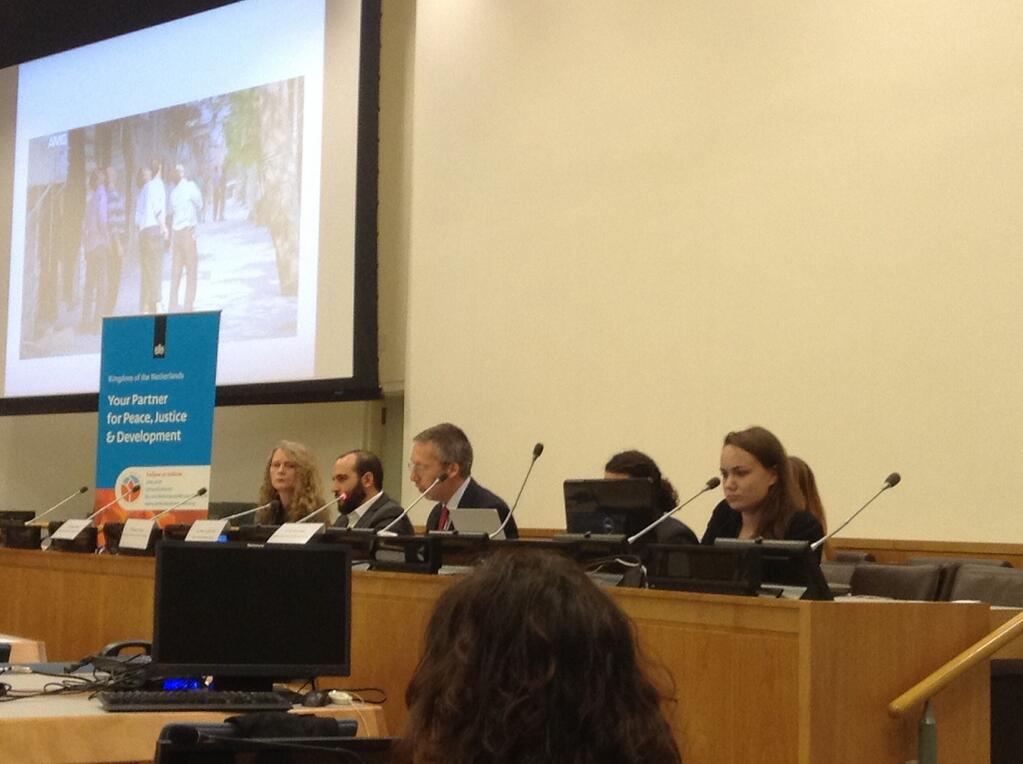Referring Syria to the ICC for Its Indiscriminate Killers
Written by: Zainab Alam
On 14 May 2014, the Permanent Mission of the Kingdom of the Netherlands to the United Nations (UN) hosted Barrel Bombs: Syria's Indiscriminate Killers at the UN Headquarters in New York. The panelists included Mr. Ibrahim Al-Assil, Executive Director of the Syrian Nonviolence Movement, Dr. Samer Attar, an American Orthopedic Surgeon of Syrian descent who volunteered in Syria during the ongoing crisis and Ms. Peggy Hicks, Global Advocacy Director from Human Rights Watch. While the event was not presented through a gender lens, it highlighted the humanitarian destruction and human insecurity that has ensued as a result of the widespread use of barrel bombs in Syria. In so doing, it supported WILPF's ongoing call for an integrated approach to security that promotes women's and men's human security not just militarized state security in preventing conflict and promoting peace.

Ambassadors from various missions to the UN subsequently addressed the need for the international community to become more aware of the indiscriminate attacks and war crimes taking place in Syria and many called for the situation to be referred to the International Criminal Court in The Hague. WILPF also firmly believes that these war crimes and crimes against humanity should not go unpunished and that the Syrian people deserve justice. In this spirit, we signed the petition supporting the UNSC Resolution to refer the situation in Syria to the International Criminal Court (ICC) alongside 116 other civil society organizations on 15 May 2014. Ultimately, Russia and China vetoed the UNSC resolution referring the situation in Syria to the Prosecutor of the ICC on 22 May 2014. For a complete analysis of this disappointing SC meeting, click here.
See the webcast of the Barrel Bombs: Syria's Indiscriminate Killers here.
